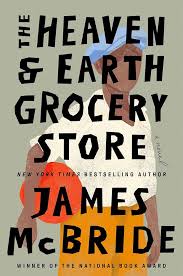Chapter 19: The Lowgods
byChapter 19: The Lowgods begins on a storm-soaked night, with Fatty gripping the wheel of his rickety Packard, leading Paper and Big Soap through thick sheets of rain toward Hemlock Row. The journey is not simply about distance, but about crossing into a realm that few dare to visit—a secluded cluster of dwellings hidden just outside Pottstown and untouched by time. Here, the Lowgods reside—descendants of a southern legacy that diverged from the upward trajectory pursued by neighboring Black communities. These individuals hold no interest in assimilation or external validation; their roots are tangled in oral tradition, mysticism, and a refusal to conform. The shacks of Hemlock Row appear weathered but strong, standing as silent markers of independence and cultural preservation. Even the air seems different here, thick with memory and belief, where modern concerns fade beneath the weight of ancestral whispers.
In contrast to Chicken Hill’s hustle for recognition and progress, Hemlock Row presents an unyielding stillness—unmoved by outside expectations, and unchanged by external pressures. Fatty and his companions, fueled by desperation, arrive with hopes hinging on a miracle they cannot define. Paper, tasked with seeking help, steps into a Lowgod dwelling, guided by both fear and need. Inside, a different rhythm governs life—one driven not by clocks or commerce, but by intuition, ritual, and the strange serenity of those untouched by ambition. He meets Miggy Fludd, a woman both feared and revered, whose body moves with divine clarity, believed to commune with otherworldly forces. Her oracular presence, marked by cryptic dances and answers typed onto faded cards, adds a surreal edge to the mission, drawing a fine line between faith and absurdity. Still, the characters do not mock her—they cannot afford to.
Miggy’s influence offers a glimpse into spiritual resilience that has long served as protection for communities like the Lowgods. These rituals, often dismissed as superstition, are vestiges of African spiritual systems carried through centuries of displacement. From Yoruba divination to the Gullah-Geechee storytelling traditions of the coastal South, communities like this have safeguarded their identities through spiritual performance, song, and resistance to cultural dilution. The cards Miggy types, while seemingly cryptic, reflect a history of encoding truth through symbolism—a survival strategy rooted in slave plantations and sharpened through generations of marginalization. Fatty, skeptical but desperate, begins to believe. For all his city smarts and bravado, he recognizes that the Lowgods possess a kind of power that no white institution ever offered him. They don’t explain themselves to the world—they don’t need to.
While Paper attempts to decode Miggy’s messages, Big Soap waits outside, pacing with nervous energy, his eyes scanning the fog for trouble. The silence that hangs over Hemlock Row is both calming and unnerving, filled with unseen watchers and unknown rules. Fatty, meanwhile, keeps the engine running as if trying to remain tethered to something familiar, fearful that once fully inside this world, he might not return the same. The mission is clear: to find a way to liberate Dodo, a deaf boy wrongly institutionalized, from the cold grip of Pennhurst Asylum. But no one among them truly understands what they are asking from the Lowgods—people who ask nothing of anyone and offer even less without a price. Trust here is not bought with words or favors but earned through intention and presence. Even silence, in this place, speaks loudly.
Their goal, however, remains righteous. Dodo’s case has become a symbol of everything broken in their world—the cruelty of institutions, the cost of being different, the easy way a Black child can be discarded by society. The plan to free him has drawn together a strange fellowship, each with different stakes in the outcome, yet united by injustice. This is what gives the chapter its emotional gravity: despite Fatty’s flaws, Paper’s uncertainties, or Big Soap’s temper, they all move with the singular purpose of restoring dignity to someone who has been stripped of it. In doing so, they risk their freedom, sanity, and perhaps more. But through Miggy’s cryptic guidance, they find a glimmer of hope. Her message is not a simple “yes” or “no,” but a layered set of truths that require introspection, patience, and faith.
The visit to Hemlock Row, brief as it is, reshapes them. The Lowgods represent an alternate vision of Black life in America—not focused on winning white approval but on surviving through autonomy, cultural memory, and spiritual resilience. Their refusal to chase assimilation is not laziness, but strategy. And that strategy, though often misunderstood, has kept them hidden, alive, and whole. The supernatural here is not about spectacle; it is a tool, a shield, and sometimes a mirror. In the presence of Miggy Fludd, the characters are forced to confront not just the problem at hand, but the depth of their own desires, fears, and unresolved pain. Her wisdom does not erase their struggles—but it offers a way forward, one grounded in listening to truths that others ignore.
As they leave Hemlock Row under the cover of night, Fatty feels the weight of what just occurred. He no longer questions whether Miggy’s words meant something—he only questions whether he has the strength to follow them. Behind them, the Lowgods fade back into the mist, unseen once again, their presence lingering like the scent of rain on parched earth. In the stillness of that drive home, no one speaks. The road is long, but something has shifted. They have been given a map—not a literal one, but a path marked by faith and risk. And if they follow it, they might just bring Dodo home.


